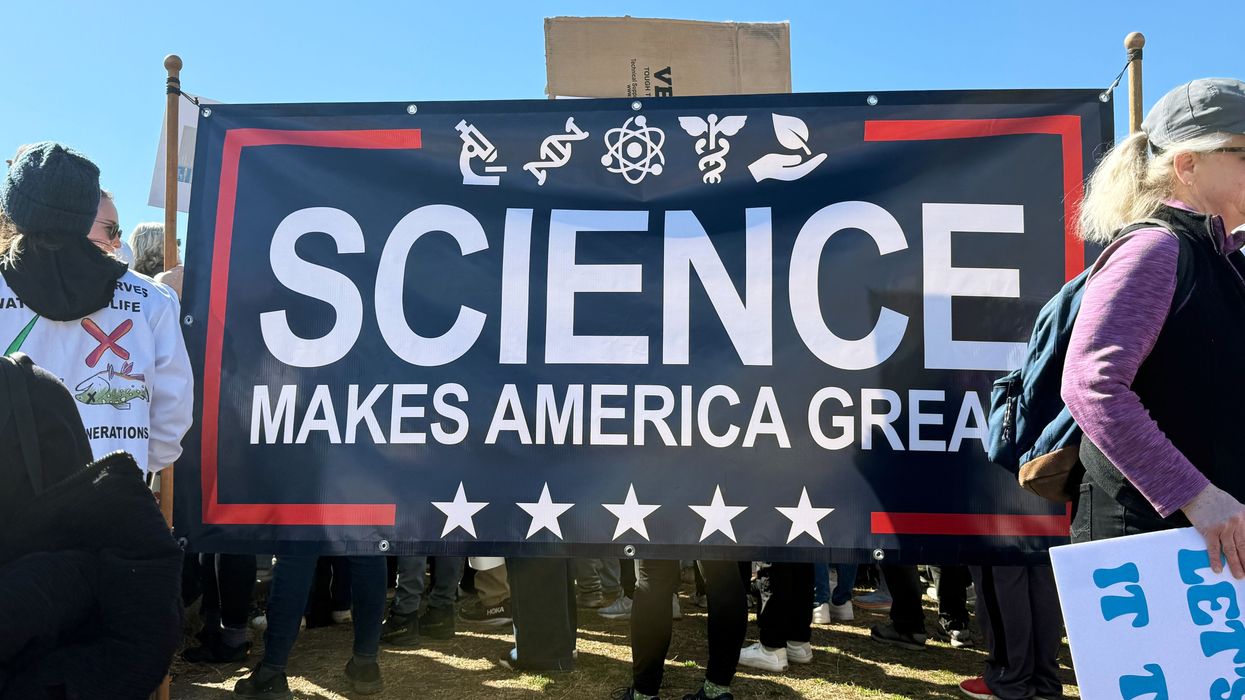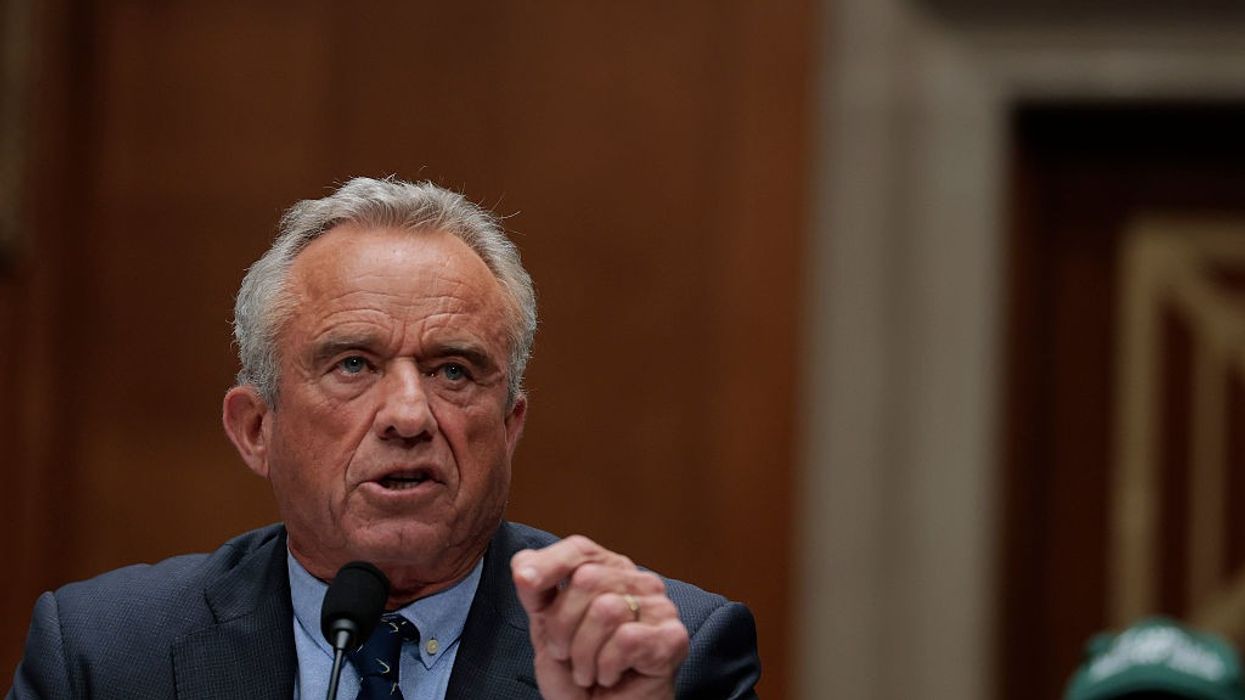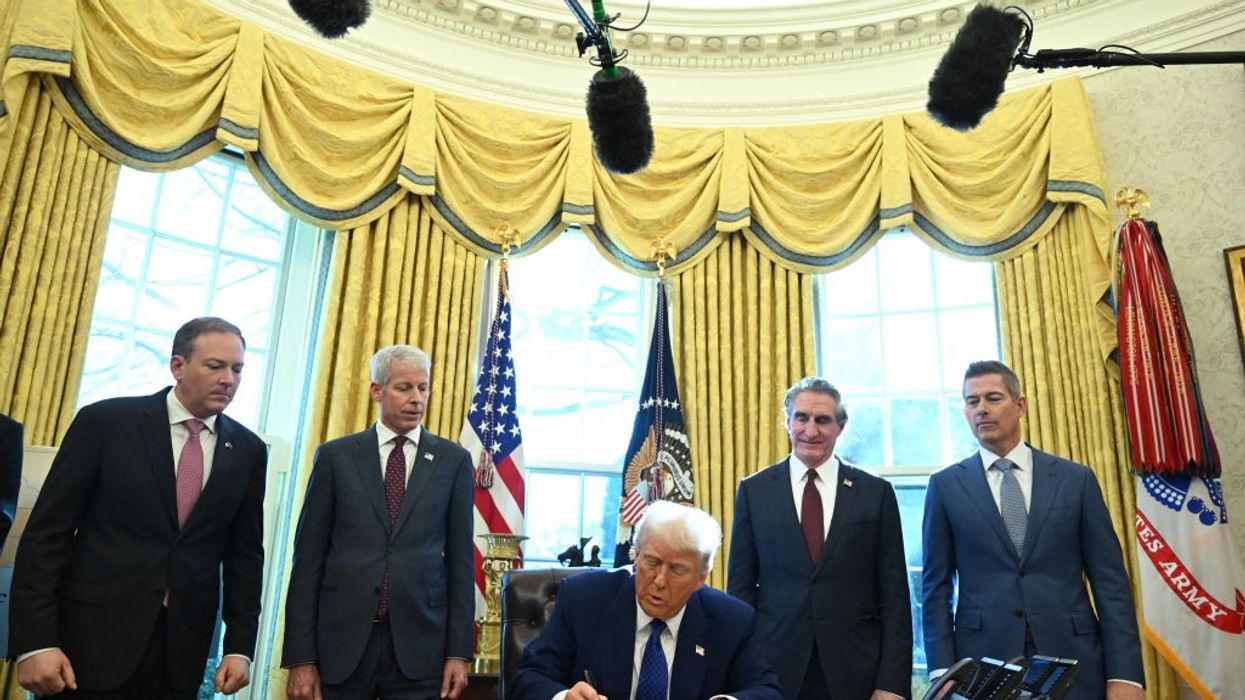NASA Releases Global Temperature Data Without Mentioning 'Climate Change'
"Pretty much all federal scientists working on climate in the US have had to self-censor," said one scientist. "Thankfully much of the underlying science is still occurring, even if they cannot talk about it."
National Aeronautics and Space Administration Administrator Bill Nelson declared a year ago that "once again, the temperature record has been shattered—2024 was the hottest year since recordkeeping began in 1880," and NASA's statement noted climate change and its consequences, from sweltering heat to devastating wildfires. This week, under a president who has called the fossil fuel-driven crisis "the greatest con job ever perpetrated on the world," there was no such language from the US agency.
NASA did release a statement about its latest findings on Wednesday. The agency said that, like other experts around the world, its scientists found that "Earth's global surface temperature in 2025 was slightly warmer than 2023—but within the margin of error the two years are effectively tied," and "the hottest year on record remains 2024."
Specifically, 2025 saw average temperatures 2.14°F or 1.19°C above the 1951-80 average, the statement said, also detailing NASA's data sources. However, in line with what President Donald Trump's second administration has done across the federal government, the release does not mention human-caused climate change.
Here's the data:
[image or embed]
— Michael E. Mann (@michaelemann.bsky.social) January 14, 2026 at 8:22 PM
The omission quickly caught the attention of journalists and scientists, including Agence France-Presse's Issam Ahmed, who began a Wednesday report on the topic with, "Don't say the c-word" and spoke with various experts:
"The US government is now, like Russia and Saudi Arabia, a petrostate under Trump and Republican rule, and the actions of all of its agencies and departments can be understood in terms of the agenda of the polluters that are running the show," University of Pennsylvania climatologist Michael Mann told AFP. "It is therefore entirely unsurprising that NASA administrators are attempting to bury findings of its own agency that conflict with its climate denial agenda."
Zeke Hausfather, a research scientist at Berkeley Earth, added, "I'm just happy they were allowed to put out a press release."
"Pretty much all federal scientists working on climate in the US have had to self-censor and leave out reference to human influences on climate change, unfortunately," he told AFP. "Thankfully much of the underlying science is still occurring, even if they cannot talk about it."
Mike Scott of Carbon Copy Communications, told Euronews Green on Thursday that NASA's new statement is "consistent" with the administration's other "anti-climate actions."
In September, the US Department of Energy—led by climate liar and former fracking CEO Chris Wright—added "climate change" to its "list of words to avoid" at the Office of Energy Efficiency and Renewable Energy. Other banned terms include carbon/CO2 "footprint," clean, decarbonization, "dirty" energy, emissions, energy transition, green, sustainability/sustainable, and tax breaks/tax credits/subsidies.
Last month, the Trump administration removed all references to human-caused climate change from Environmental Protection Agency webpages, as well as data showing global warming over recent decades and the resulting risks. Daniel Swain, a climate scientist at the University of California Agriculture and Natural Resources, called it "one of the more dramatic scrubbings we've seen so far in the climate space."
And we have a NASA press release at least! www.nasa.gov/news-release...
[image or embed]
— Alexandra Witze (@alexwitze.bsky.social) January 14, 2026 at 9:28 AM
Since returning to office nearly a year ago with support from Big Oil's money, Trump has also declared a "national energy emergency" to help deliver on his campaign pledge to "drill, baby, drill," rolled back various climate policies implemented under his Democratic predecessor, ditched the Paris climate agreement again along with dozens of other international treaties and organizations, refused to attend an annual United Nations summit, and more.
"This increasingly authoritarian regime has operated with impunity to tear up climate and clean energy policies, lie about the scientific realities of climate change and the facts on renewable energy, and ram through measures to boost fossil fuels and the profits of polluters," Rachel Cleetus, policy director with the Climate and Energy program at the Union of Concerned Scientists, wrote Thursday.
"They have attacked the federal scientific enterprise built up over decades through taxpayer investments, fired or forced out agency experts, and cut funding for critical science. And a compliant Congress has enabled this destructive agenda, including by rubber-stamping some of the president's illegal actions and by failing to exercise its constitutional powers to check his tyrannical power grabs," she continued.
"This year has also brought extraordinary efforts to expose and fight back against the worst excesses of this unhinged administration," she noted, pointing to lawsuits, organizing, and wins in states. "And as we face down another tough year under the anti-science, authoritarian Trump administration, we're fired up to keep up the fight for science and for our democracy. We hope you'll join us—because despite it all, that future is ours to build."
The finance industry is relying on climate models that understate the speed of climate change and likely economic impact. New report warns that climate-driven inflation, financial shocks, and insurance withdrawals could happen sooner than anticipated. 🧪greenfuturessolutions.com/news/parasol...
[image or embed]
— Scientists for Global Responsibility (@responsiblesci.bsky.social) January 14, 2026 at 4:38 AM
Like Cleetus, Scott of Carbon Copy Communications expects Trump and his allies to continue waging its war on science.
"It's not clear what climate institutions are left for Trump to try and dismantle, but there is little doubt that if he finds them, he will go after them," he warned. "The climate denial is really worrying and out of line with almost every other country in the world, including most of the world's largest oil producers. Failing to acknowledge the impacts of climate change will leave the US less able to deal with those impacts—which will continue to happen whatever Trump thinks."
"The US stance is bad for science, it's bad for the US economy and its citizens, and it's bad for the climate," Scott added. "It's also unsustainable. Climate change will not stop because the US administration doesn't believe in it. The American response to climate-related disasters will be worse if it doesn't understand why extreme weather events and other climate impacts are happening."



